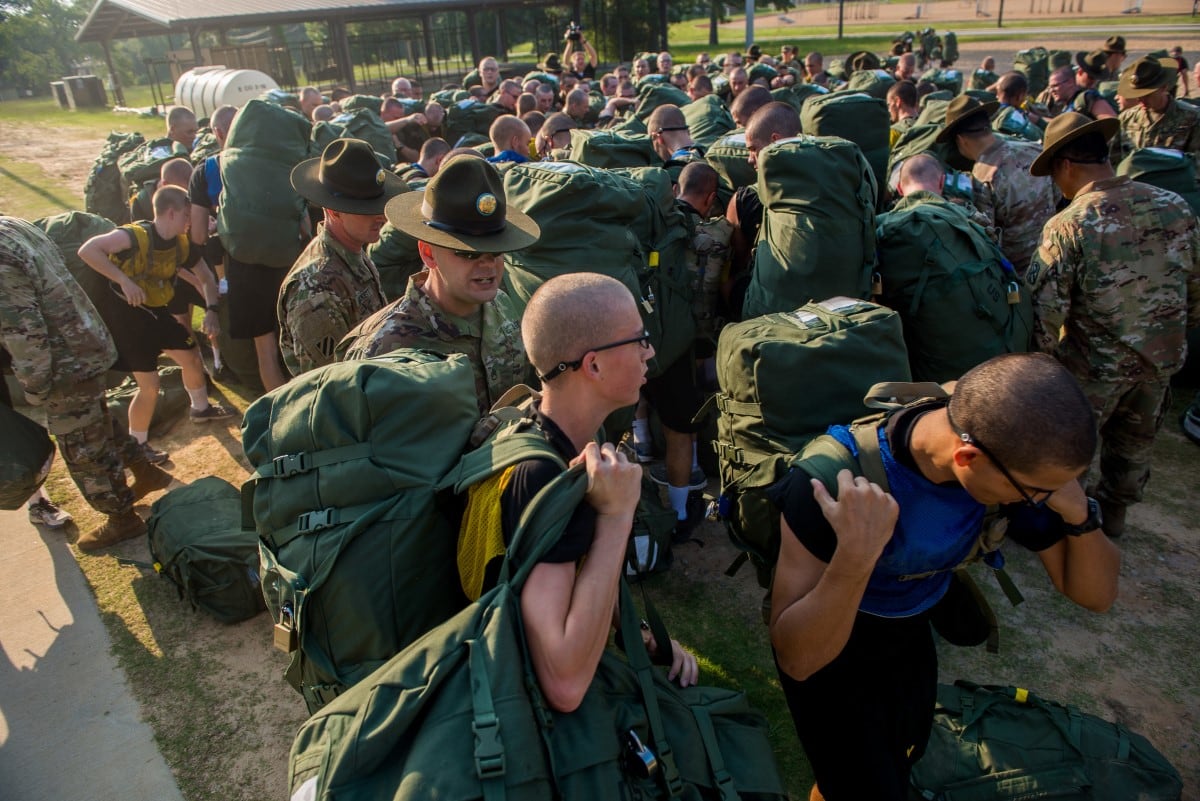The Army is introducing a pilot program designed to find recruits who will be a better fit for the service and even allow them to enter jobs that require higher standardized test scores than what they earned, according to an Army news release.
The Pentagon has authorized a three-year study using the Tailored Adaptive Personality Assessment System, or TAPAS, a 120-question personality test that measures a recruit’s potential.
The test has been given to enlisting soldiers since 2009, alongside other entrance exams like the Armed Services Vocational Aptitude Battery, or ASVAB. The data from the past decade has helped the Army learn what types of personalities are attracted to, and do well in, certain career fields, according to the service.
The results consistently show that individuals with higher motivation do much better than what their below-average scores might indicate, and have fewer disciplinary incidents during their service, Army researchers said in a recent news release.
“Those who will enlist through the pilot program will be more qualified than what their cognitive test score says,” said Tonia Heffner, a researcher at the Army Research Institute for the Behavioral and Social Sciences, in the news release. “I expect them to perform much higher than that. It’s not even a little bit, it’s noticeably higher than that. There will be lower attrition for the people in the pilot program and they will outperform many of their peers.”
The ASVAB tests measure recruits’ cognitive abilities and whether they would be able to handle the training tasks associated with various career fields.
The TAPAS test, meanwhile, is designed to identify other aspects of a recruit’s potential, including leadership capability, resilience, ingenuity, selflessness, commitment to service, and attrition or retention propensity, according to researchers.
Part of what Army researchers say makes TAPAS unique is that it’s “fake resistant," Heather Wolters, a senior research psychologist for the Army, said in May 2015.
"It’s good for high-stakes testing in that when soldiers are trying to present themselves in a certain way, this test is resistant to that,” she said.
The test presents recruits with two statements and asks a recruit to select the statement that is most like them. Both statements are relatively similar and socially desirable so it’s difficult for a recruit to game the test and figure out which statement would make them a better candidate, according to Wolters. The test also adapts subsequent questions based on what the response was to the previous question.
The test is designed to measure dimensions of the test-taker’s personality, such as dominance, sociability, attention seeking, generosity, self-control, temperament and optimism.
Under the pilot program, a maximum of 6,000 recruits from the active duty Army, Army Reserve and Army National Guard who score between a 45-49 on the AFQT — and who also score in the top 50 percent on the TAPAS test — will be exempt from the AFQT’s grading scale.
The AFQT is a combination of the four scores from the math and verbal domains of the ASVAB. Recruits’ results are measured as percentiles, from 1 to 99, so recruits in the 99th percentile scored better than 99 percent of their peers.
Anyone enlisting under the pilot program must still meet other eligibility criteria for their chosen jobs, like passing the Occupational Physical Assessment Test for a certain job or passing a criminal background check, the Army news release said.
“If someone is within five points out of a 100-point scale [on their AFQT] … we’re saying they scored just below, but because of their motivation, they’ll behave like someone who scores above," Heffner said in the Army news release.
Kyle Rempfer was an editor and reporter who has covered combat operations, criminal cases, foreign military assistance and training accidents. Before entering journalism, Kyle served in U.S. Air Force Special Tactics and deployed in 2014 to Paktika Province, Afghanistan, and Baghdad, Iraq.




